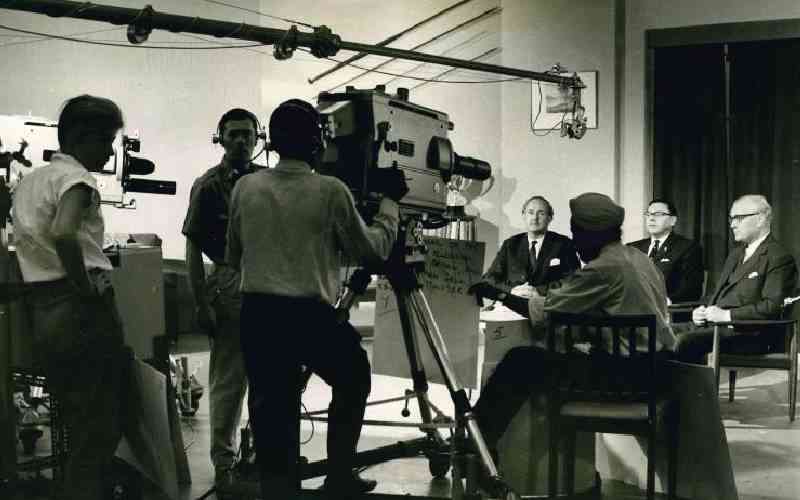
When British authorities completed the construction of the Uganda Railway, or the "Lunatic Express" in 1903, they had to find ways of paying back taxpayers' money amounting to PS5.3 million, funds deemed to have been unwisely invested.
The local population was judged as too laid-back to be of any economic use except as a source of cheap labour. The only viable option was to bring in white settlers with agricultural knowledge.
The British had toyed with the idea of establishing a Zionist State in East Africa for persecuted European Jews. The mission came a cropper when the initial party of Jewish prospectors declined the offer to settle in present-day Uasin Gishu, partly due to hostile reception from the locals.
The colonial office in London then turned to the mass media, placing adverts in British newspapers to entice Britons to settle in the colony. One of the most tempting adverts that set the stage for Kenya to become a 'White man's country' ran as follows:
"Settle in Kenya, Britain's youngest and most attractive colony. Low prices at present for fertile areas. No richer soil in the British Empire. Kenya colony makes a practical appeal to the intending settler with some capital. Its valuable crops give high yields, due to the high fertility of the soil, adequate rainfall and abundant sunshine. Secure the advantage of native labour to supplement your own effort."
Such advertisements were crafted in a way that made no mention of any adverse exploitation of local resources. According to the book, Imperial Reckoning: The Untold Story of Britain's Gulag in Kenya, the settlers came to East Africa, and other colonies, as 'caretakers,' out of their 'moral obligation' to redeem locals of backward practices.
"According to their own line of reasoning, the British were not actually stealing African land or exploiting local labour but were instead self-appointed trustees for the hapless "natives," who had not yet reached a point on the evolutionary scale to develop or make responsible decisions on their own. With proper British guidance, and tough paternalistic love, Africans could be made into progressive men and women, though it would take many decades or more likely centuries for such a radical transformation to take place," wrote Caroline Elkins.
- Meet the new Miss World Kenya Grace Ramtu
- Elizabeth Wakesho leads the way as Kenya's first certified female marine captain
- Mrs Heritage crowned in Nairobi
- Made in Kenya: Fashion with a sustainable twist
Keep Reading
The skewed media adverts did not give settlers a fair view of the land they were soon to inherit. Hard truths hit them when they arrived only to find that their accommodation in the remotest corners of the colony were "little more than a single hut that functioned as an office, local courthouse, and bunk."
 The Standard Group Plc is a multi-media organization with investments in media platforms spanning newspaper print
operations, television, radio broadcasting, digital and online services. The Standard Group is recognized as a
leading multi-media house in Kenya with a key influence in matters of national and international interest.
The Standard Group Plc is a multi-media organization with investments in media platforms spanning newspaper print
operations, television, radio broadcasting, digital and online services. The Standard Group is recognized as a
leading multi-media house in Kenya with a key influence in matters of national and international interest.











